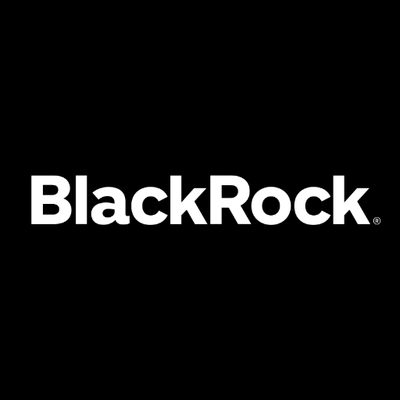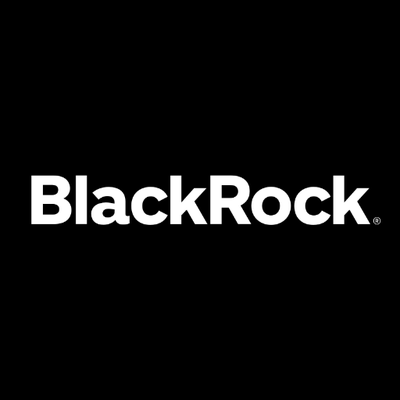BlackRock Greater Europe Investment Trust plc (LON:BRGE) has announced its latest portfolio update.
All information is at 30 November 2022 and unaudited.
To discover more about the BlackRock Greater Europe Investment Trust click here
Performance at month end with net income reinvested
| One Month | Three Months | One Year | Three Years | Launch (20 Sep 04) | |
| Net asset value (undiluted) | 8.6% | 7.0% | -24.5% | 26.8% | 592.1% |
| Share price | 9.2% | 6.4% | -30.0% | 26.0% | 566.6% |
| FTSE World Europe ex UK | 8.0% | 7.2% | -2.9% | 20.6% | 348.4% |
Sources: BlackRock and Datastream
At month end
| Net asset value (capital only): | 504.24p |
| Net asset value (including income): | 504.30p |
| Share price: | 480.25p |
| Discount to NAV (including income): | 4.8% |
| Net gearing: | 0.4% |
| Net yield1: | 1.4% |
| Total assets (including income): | £509.3m |
| Ordinary shares in issue2: | 101,000,161 |
| Ongoing charges3: | 0.98% |
1 Based on an interim dividend of 1.75p per share and a final dividend of 4.85p per share for the year ended 31 August 2022.
2 Excluding 16,928,777 shares held in treasury.
3 The Company’s ongoing charges are calculated as a percentage of average daily net assets and using the management fee and all other operating expenses excluding finance costs, direct transaction costs, custody transaction charges, VAT recovered, taxation, write back of prior year expenses and certain non-recurring items for the year ended 31 August 2022.
| Top 10 holdings | Country | Fund % |
| Novo Nordisk | Denmark | 8.8 |
| LVMH Moët Hennessy | France | 8.1 |
| ASML | Netherlands | 6.7 |
| RELX | United Kingdom | 5.7 |
| Lonza Group | Switzerland | 5.0 |
| DSV Panalpina | Denmark | 4.4 |
| Hermès International | France | 4.0 |
| Sika | Switzerland | 3.7 |
| Safran | France | 3.2 |
| IMCD | Netherlands | 3.2 |
Commenting on the markets, Stefan Gries, representing the Investment Manager noted:
During the month, the Company’s NAV rose by 8.6% and the share price by 9.2%. For reference, the FTSE World Europe ex UK Index returned 8.0% during the period.
European ex UK equities continued to rally during November. Lower-than-expected inflation numbers have led to expectations for a slower pace of interest rate hikes. Yet we hear from central bank speakers that tightening still has some way to go. Nevertheless, risk assets bounced during the month.
Europe has outperformed US equities in recent months on the back of more optimism around gas storage levels in Europe, a slightly weakening US dollar and lack of big tech companies such as Google and Microsoft that have shown softness in recent weeks. The rally was led by cyclicals and has been funded by profit taking in defensive parts of the market. Tech, energy and consumer discretionary delivered the strongest returns, while telecoms and health care lagged the strong market rally.
During the month, the Company outperformed its reference index, driven by both strong stock selection and sector allocation.
In sector terms, a higher allocation to the technology sector, in particular to the semiconductor industry which outperformed software, was beneficial. The Company’s lower weight to defensive areas such as telecoms, consumer staples and real estate aided relative returns. Our higher allocation to health care detracted, although this was significantly offset by strong stock selection. The underweight exposure to energy was negative during the month.
Positive performance was driven by the Company’s cyclical assets, namely within the luxury and semiconductor sectors. Our large position in LVMH was amongst the strongest contributors to relative returns. Hopes around a potential softening of China’s zero Covid policy helped shares in China-exposed stocks such as luxury.
The semiconductor industry benefited from the cyclical tailwind during November and shares in ASML, ASMi and Besi contributed positively. On top of that, ASML, a leading supplier in the industry, held a positive Capital Markets Day, setting confident new targets for 2025. Despite the macroeconomic uncertainties in the near term, ASML seems to be somewhat insulated given 18-24 months of tool lead times and 2 years of order backlog.
ASMi also recovered post weakness in the previous month. Following the announcement of US export restrictions on China, the chipmaker had initially anticipated the regulations could impact 40% of sales to China. Having done extensive internal reviews, ASMi now estimate a 15-25% drop which reassured markets during November.
Not owning shares in Roche was the largest single positive contributor to relative performance during the month. Shares in the Swiss pharmaceuticals company came under pressure following the failed trial for their Alzheimer drug, Gantenerumab, seeking to provide preventive treatment for patients with early signs of the disease.
Elsewhere within health care, the Company’s position in Lonza weighed on performance. Shares were impacted when a US based contract development and manufacturing organization peer released a downgrade to their fiscal year (FY) guidance based on macro deterioration and Covid related business slow down. We believe the read across to Lonza was unwarranted, with shares overacting, given the company specific nature driving the peer downgrade.
Negative contribution also came from shares in RELX which plunged on mounting investor concerns over the company’s revenue exposure to a weakening US dollar. Also, in the industrials sector, not owning Siemens contributed negatively to relative performance. The company reported strong FY22 results showing no signs of a slowdown yet, as they continue to work through their order backlog.
Other detractors included not owning cyclical stocks with China exposure including Prosus, Infineon, Richemont and Kering.
At the end of the period, the Company had a higher allocation than the reference index towards consumer discretionary, technology, health care and industrials.
The Company had an underweight allocation to financials, energy, consumer staples, utilities, telecoms, materials and real estate.
Outlook
2022 has been challenging, with concerns over the economic implications of the Russian invasion of Ukraine, rising interest rates and continued supply chain disruptions weighing on equity returns.
We are incrementally more cautious on the environment but see opportunities for attractive returns in select areas. Large amounts of fiscal spending via the Recovery Fund, Green Deal and the REPowerEU plan in Europe can drive demand for years to come, for example in areas such as infrastructure, automation, the shift to electric vehicles, digitisation, renewables or the refurbishment of building stock. We believe the portfolio is well aligned to many of these spending streams.
We continue to stay close to our companies which allows us to understand the environment they are operating in. We expect greater dispersion between sector and stock outcomes and with that a need for greater selectivity. In our view this will favour well-managed, well-organised businesses with an element of pricing power and we believe that holding these businesses will benefit our shareholders over the medium to long term.
To discover more about the BlackRock Greater Europe Investment Trust click here






































